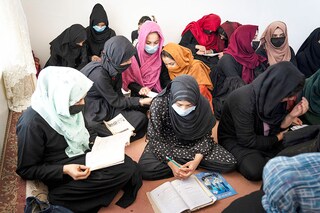Need to reimagine education to bring peace
The world is getting even more VUCA (volatile, uncertain, complex, and ambiguous), which requires reimagining, redefining, and relaying the learning ethos


Malala Yousafzai was 11 years old when she gave her first speech, “How Dare The Taliban Take Away My Basic Right to Education?" This was September 1, 2008, and by the end of 2008, the Taliban announced that all girls’ schools in Svat Valley in Pakistan would be shut down on January 15, 2009. Her protest continued, and the struggle became more intense despite the support from various human rights organisations and international media. By October 2011, she had been nominated for the International Children’s Peace Prize. In December 2011, she was awarded Pakistan’s first National Youth Peace Prize, later renamed ‘the National Malala Peace Prize’. She received the Nobel Peace Prize in 2014 and graduated from Oxford University. But peace continues to elude the Svat Valley, Pakistan and the region under the Taliban.
Someone said that the generation expected to earn a pension for you is busy chasing Pokemons. Distractions are rising, and so is the attention deficit. The irony is that digitisation that powers new global growth is also responsible for decaying attention spans. Gloria Mark, Chancellor’s Professor of Informatics at the University of California, Irvine, is a PhD from Columbia University in psychology. Having done extensive research on the impact of digital media on people’s lives, she says that over the past couple of decades, people’s attention spans have shrunk in measurable ways. She asserts that the internet and digital devices have affected our ability to focus multitasking is stressful, and understanding the science of attention can help us regain our focus. Does our education system cater to these challenges? The world is getting even more VUCA (volatile, uncertain, complex, and ambiguous), which requires reimagining, redefining, and relaying the learning ethos.
The recent Annual Survey of Education Report says that many 14-18-year-olds lack foundational literacy and numeracy skills. Additionally, the report suggests reorienting teaching methods to enable students to apply academic concepts to real-life situations. This can be achieved by using behavioural concepts like ‘choice architecture,’ which tends to provide a nudge towards the desirable goal with a ‘libertarian paternalism’ approach. The behavioural approach can help achieve the education goals, the SDGs, and the much-required peace on this beautiful planet.
Dr. V. P. Singh, Director, PGDM & Professor - Managerial Economics & Statistics
First Published: May 23, 2024, 17:24
Subscribe Now